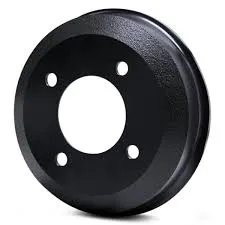
-
 Afrikaans
Afrikaans -
 Albanian
Albanian -
 Amharic
Amharic -
 Arabic
Arabic -
 Armenian
Armenian -
 Azerbaijani
Azerbaijani -
 Basque
Basque -
 Belarusian
Belarusian -
 Bengali
Bengali -
 Bosnian
Bosnian -
 Bulgarian
Bulgarian -
 Catalan
Catalan -
 Cebuano
Cebuano -
 Corsican
Corsican -
 Croatian
Croatian -
 Czech
Czech -
 Danish
Danish -
 Dutch
Dutch -
 English
English -
 Esperanto
Esperanto -
 Estonian
Estonian -
 Finnish
Finnish -
 French
French -
 Frisian
Frisian -
 Galician
Galician -
 Georgian
Georgian -
 German
German -
 Greek
Greek -
 Gujarati
Gujarati -
 Haitian Creole
Haitian Creole -
 hausa
hausa -
 hawaiian
hawaiian -
 Hebrew
Hebrew -
 Hindi
Hindi -
 Miao
Miao -
 Hungarian
Hungarian -
 Icelandic
Icelandic -
 igbo
igbo -
 Indonesian
Indonesian -
 irish
irish -
 Italian
Italian -
 Japanese
Japanese -
 Javanese
Javanese -
 Kannada
Kannada -
 kazakh
kazakh -
 Khmer
Khmer -
 Rwandese
Rwandese -
 Korean
Korean -
 Kurdish
Kurdish -
 Kyrgyz
Kyrgyz -
 Lao
Lao -
 Latin
Latin -
 Latvian
Latvian -
 Lithuanian
Lithuanian -
 Luxembourgish
Luxembourgish -
 Macedonian
Macedonian -
 Malgashi
Malgashi -
 Malay
Malay -
 Malayalam
Malayalam -
 Maltese
Maltese -
 Maori
Maori -
 Marathi
Marathi -
 Mongolian
Mongolian -
 Myanmar
Myanmar -
 Nepali
Nepali -
 Norwegian
Norwegian -
 Norwegian
Norwegian -
 Occitan
Occitan -
 Pashto
Pashto -
 Persian
Persian -
 Polish
Polish -
 Portuguese
Portuguese -
 Punjabi
Punjabi -
 Romanian
Romanian -
 Russian
Russian -
 Samoan
Samoan -
 Scottish Gaelic
Scottish Gaelic -
 Serbian
Serbian -
 Sesotho
Sesotho -
 Shona
Shona -
 Sindhi
Sindhi -
 Sinhala
Sinhala -
 Slovak
Slovak -
 Slovenian
Slovenian -
 Somali
Somali -
 Spanish
Spanish -
 Sundanese
Sundanese -
 Swahili
Swahili -
 Swedish
Swedish -
 Tagalog
Tagalog -
 Tajik
Tajik -
 Tamil
Tamil -
 Tatar
Tatar -
 Telugu
Telugu -
 Thai
Thai -
 Turkish
Turkish -
 Turkmen
Turkmen -
 Ukrainian
Ukrainian -
 Urdu
Urdu -
 Uighur
Uighur -
 Uzbek
Uzbek -
 Vietnamese
Vietnamese -
 Welsh
Welsh -
 Bantu
Bantu -
 Yiddish
Yiddish -
 Yoruba
Yoruba -
 Zulu
Zulu
cost to convert drum brakes to disc brakes
Converting drum brakes to disc brakes is a common aftermarket modification aimed at improving vehicle performance, safety, and drivability. This upgrade is particularly popular among automotive enthusiasts and those looking to enhance their vehicle’s braking capabilities. However, before diving into such a conversion, it is essential to understand the costs involved and what factors influence these expenses.
One of the primary factors affecting the cost to convert drum brakes to disc brakes is the type of vehicle. Different makes and models may require specific components, which can vary widely in price. For example, retrofitting classic cars often involves sourcing hard-to-find parts, while modern vehicles might have more readily available kits. As a result, the total cost can range from a few hundred dollars to several thousand, depending on these variables.
The cost of the conversion kit itself is another significant consideration. Aftermarket conversion kits typically include new calipers, rotors, brackets, and sometimes even new brake lines. These kits can vary in price based on quality and brand, ranging anywhere from $300 to $1,500 on average. Additionally, opting for premium components or complete brake system upgrades will naturally increase the overall cost.
Labor costs are another crucial factor in the equation. While some experienced DIYers may choose to undertake the conversion themselves, many car owners will opt for professional installation. Labor rates can vary considerably based on location and the complexity of the job. Generally, installing a disc brake conversion kit might take anywhere from 2 to 6 hours, leading to labor costs ranging from $100 to $600 or more, depending on the hourly rate of the shop.
cost to convert drum brakes to disc brakes

Moreover, it's essential to consider any additional modifications that may be necessary during the conversion. For instance, some vehicles may require new wheels to accommodate larger disc brakes, and modifications to the suspension may also be necessary to ensure proper fitment and performance. These potential add-on costs can further escalate the overall expense of the project.
Finally, the benefits of converting to disc brakes should also be weighed against the costs. Disc brakes typically offer superior performance over drum brakes, including better heat dissipation and reduced brake fade during prolonged use. This translates to shorter stopping distances and improved safety, especially in demanding driving conditions.
In conclusion, while the cost to convert drum brakes to disc brakes can vary widely based on factors such as vehicle type, kit selection, and labor costs, the investment is often justified by the significant performance improvements and enhanced safety features. For car enthusiasts and those seeking to upgrade their vehicles, this conversion can be a worthwhile endeavor, delivering both tangible benefits and greater driving confidence.
-
What Are Drum BrakesNewsJul.07,2025
-
Understanding Brake Drum MaterialNewsJul.07,2025
-
Semi-Trailer Brake Drum: A Key Component for Extreme Loads and Long-Distance TransportNewsJul.07,2025
-
Drum Brake Pads for SaleNewsJul.07,2025
-
Brake Drums for SaleNewsJul.07,2025
-
Brake Drum ManufacturerNewsJul.07,2025
-
Aluminum Brake Drums: The Future of High-Performance CarsNewsJul.07,2025
